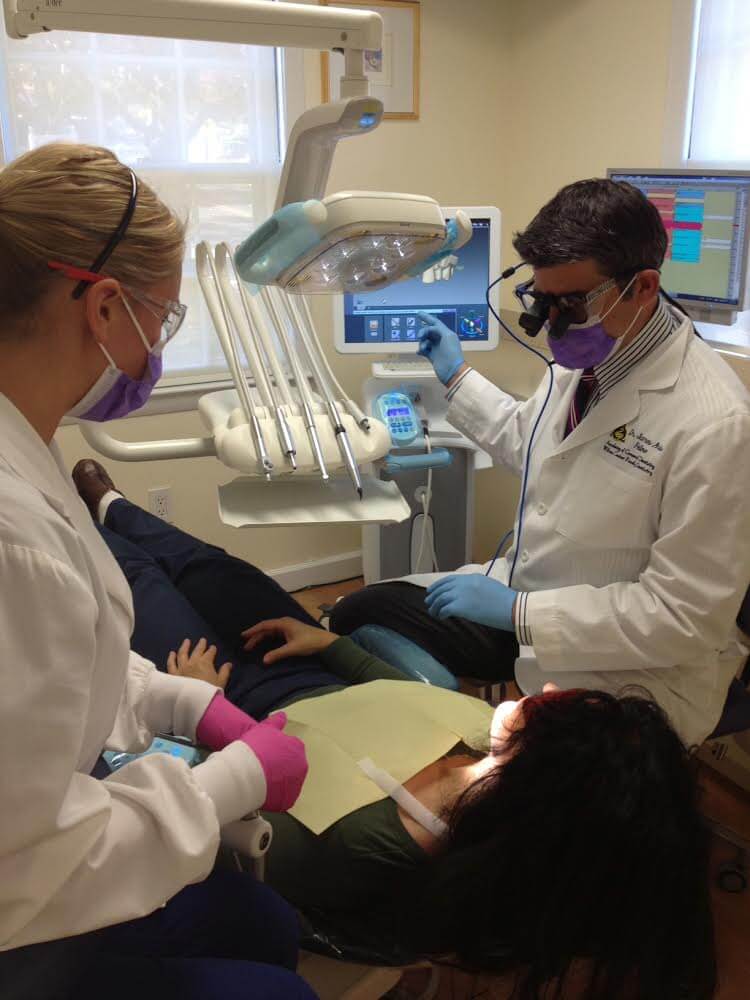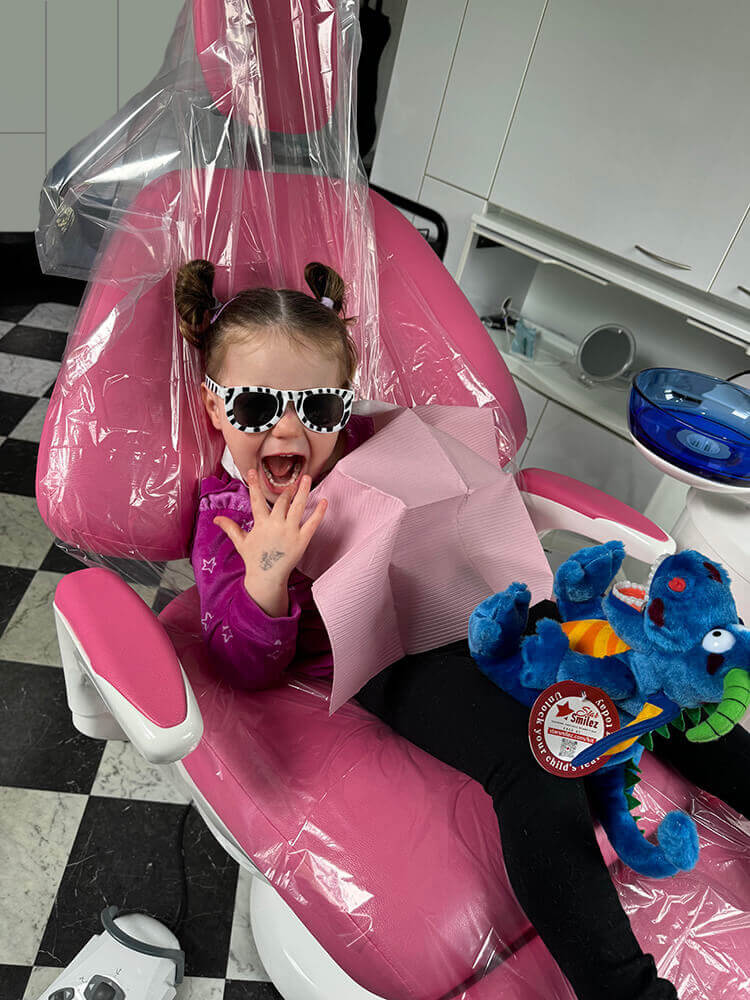Our Services


Our comfortable office environment allows you to relax as we take care of your dental needs. Whether you simply need a cleaning or a crown or want to enhance your smile with Cosmetic Dentistry, we are here to take care of you! Dr. Aris offers a wide range of dental services including:
Whitening, also known as bleaching, is the procedure used to brighten teeth. There are two different ways to achieve a desired whiter smile: In-Office Bleaching and At-Home Bleaching.
In-Office Bleaching usually requires only one office visit. A protective gel or a rubber shield is placed over the gums to protect the soft tissue. A bleaching agent containing carbamide peroxide is applied to the teeth, and a laser light is then used to enhance the action of the whitening agent .
At-Home bleaching requires an impression of the teeth to be taken to make a customized mouth guard to hold the whitening gel, containing carbide peroxide, against the teeth. Once the mouth guard is made, it is worn for a period of time, as instructed by our office. The amount of time may vary from a couple hours a day, or all night, to up to four weeks or longer, if desired.
A denture is a removable replacement for missing teeth. There are two types of dentures: Complete (Full) and Partial Dentures.
Complete (Full) Dentures are made after all the teeth in the upper and/or lower jaw have been removed and the gum tissue has healed. The denture includes an acrylic base that is custom made in the dental laboratory and is made to look like natural gums. The denture sits over the gums or can be anchored to dental implants.
Removable Partial Dentures are made when only a few teeth need to be replaced. Removable partial dentures either attach to crowns on either side of the denture or to a metal framework that is then attached to the teeth on both sides of the partial denture. When worn during the day, removable partial implants can also be supported in place by dental implants. As opposed to being removable, partial dentures can also be anchored in place by being attached to dental implants.
Many sports require athletes to use a Mouth Guard to protect their teeth while practicing and playing. Frequently used in contact sports, the mouth guard covers the gums and teeth to provide protection for lips, gums, teeth and arches. A properly fitted mouth guard can reduce the severity of dental injuries.
Pre-formed, ready-to-wear mouth guards can be purchased inexpensively at many sporting stores, but they do not always fit well. They can be uncomfortable and interfere with talking and even breathing.
Sporting goods stores also offer semi-custom mouth guards, in which the plastic is heated and then the athlete bites on it while still warm to provide some level of custom fit.
Your dentist can make a custom mouth guard by taking an impression of your teeth and then creating a device fitted to your mouth for the highest level of both comfort and protection. A custom fitted mouthguard can be particularly important for athletes who wear braces.
Be sure to bring your mouthguard to your dental appointments so your doctor can be sure it still fits you well.
The temporomandibular joint (TMJ) is similar to a sliding hinge that connects your jawbone to your skull. TMJ disorders can cause pain in the jaw joint and in the muscles that control jaw movement.
To treat TMJ disorders, first the cause has to be identified. In less severe cases TMJ disorders can be treated with self-managed care (eating soft foods, using ice packs, avoiding extreme jaw movement) or nonsurgical treatments (anti-inflammatory medications, Botox injections, stabilization splints).
Lasers in dentistry allow for many dental procedures to be performed with no noise, very little pain and fewer appointments. All lasers work by delivering energy in the form of light. When used for surgical and dental procedures, the laser acts as a cutting instrument or a vaporizer of tissue that it comes in contact with. When used for “curing” a filling, the laser helps to strengthen the bond between the filling and the tooth. When used in teeth-whitening procedures, the laser acts as a heat source and enhances the effect of tooth-bleaching agents. The procedures performed with dental lasers are minimally invasive and preferable to conventional surgery.
Other benefits of laser dentistry over traditional methods can include:
Reduced heat and vibration
Little or no need for anesthetic
Faster treatment
Increased rate of retention
Fewer post-operative complications
Lasers can be used in dental procedures to:
“Cure” or harden fillings
Whiten teeth
Reshape gum tissue
Biopsy or remove soft tissue lesions and ulcers
Remove areas of tooth decay
Eliminate pockets of infected gum tissue
Root canal therapy
Correct ankyloglossia (tongue-tied)
Oral surgery and extractions
Biomimetic Dentistry is defined as the reconstruction of teeth to emulate their natural biomechanical and esthetic form and function. Simply put, biomimetic dentistry means to copy what is life-like. With biomimetic dentistry, only the damaged and decayed part of the tooth is removed and the final restoration is bonded to the remaining healthy natural tooth structure. Biomimetic restorations include stress-reduced direct composite restorations and porcelain/composite inlays and onlays that restore the biomechanics of broken and damaged teeth. Traditional dental treatments do not follow the biomimetic approach.
When restoring damaged, broken, and decayed teeth, the goal is to return the tooth to its original strength, function, and esthetic. Biomimetic dentistry accomplishes all of this in a conservative, strong, and attractive approach.
